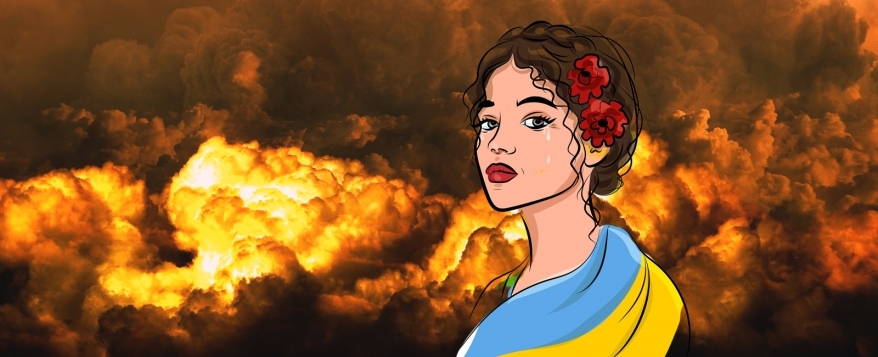Today marks the 2-year anniversary of Russia’s escalation of its aggression against Ukraine: 731 days of full-scale invasion of Ukraine by Russia. We will soon have the first generation of students in Ukraine who completed a full higher education cycle under war conditions. It is under these most difficult circumstances that doctoral candidates and early career researchers are continuing their research and their teaching of students – they keep the universities functioning.
As the European Council of Doctoral Candidates and Junior Researchers (Eurodoc), we represent the grassroots level of the generation of scientists across Europe who, in academia and in society, will teach and conduct research for the coming years. This is the generation of researchers who will shape the higher education and research sector for the decades to come. In Ukraine, this is exactly the generation whose continuation in academia is currently under extreme jeopardy.
Since the war started, the percentage of Ukraine’s GDP used on research has dropped to 0.4%. Such a cut affects the sector on all levels, from research projects having been stopped to academic staff going for months without salary. It will also slow Ukraine’s recovery process. The war has brought societal, economic, and ecological catastrophes. To deal with these, Ukraine needs a well functioning research and higher education sector and for that it needs to retain its junior researchers.
Yet, while the €53 billion support for Ukraine provided by the EU, member states, and European financial institutions mentions the Ukrainian higher education sector, it does not clearly allocate any money for its support.
This marks a broader trend: In the current discussions in Europe, higher education and research’s importance for democracies is easily forgotten. But with education comes the ability to see solutions to problems and challenges, to identify what is not yet known, and to recognize what needs to be understood. Education paves the way for research, and research in turn leads to new technologies, knowledge and understanding, which then will shape society and education. A high quality education – from kindergarten to the doctoral degree – enables citizens to understand and shape the society they live in, from hands-on and practical to abstract and theoretical education.
Thus, the cut in funding that the war has meant together with the lack of support dedicated to the higher education sector will severely affect Ukraine’s ability for a sustainable recovery.
Academics are often portrayed as living in an ivory tower. Yet, as researchers, we are also first and foremost citizens, and research and higher education are a public good. This is why we as representatives of more than one million doctoral candidates, postdocs, and other early career researchers from across Europe advocate for money being clearly allocated for research and higher education in the recovery fund for Ukraine. Investing in research and higher education is an investment in the future of Ukraine’s democracy and Europe’s.
Signed and written in the personal capacity of:
- Hannah Schoch, Eurodoc Secretary - https://orcid.org/0000-0002-3987-4106
- Pil Maria Saugmann, Eurodoc Vice President- https://orcid.org/0000-0002-3548-0134
- Sebastian Dahle, Eurodoc President - https://orcid.org/0000-0001-7568-0483

